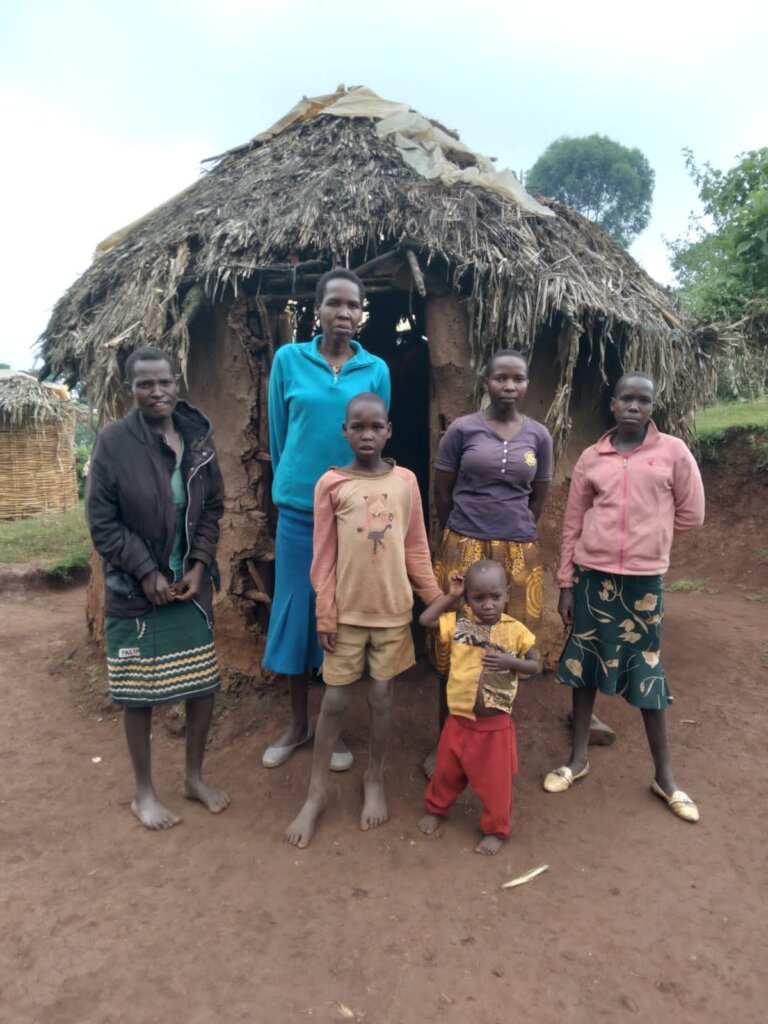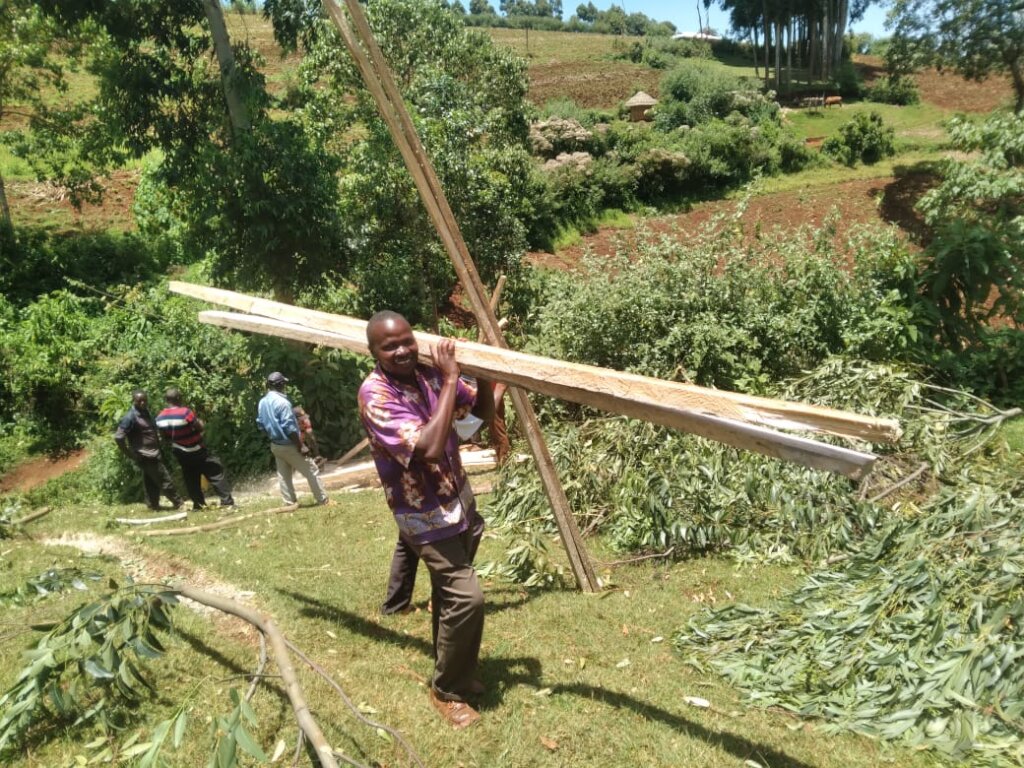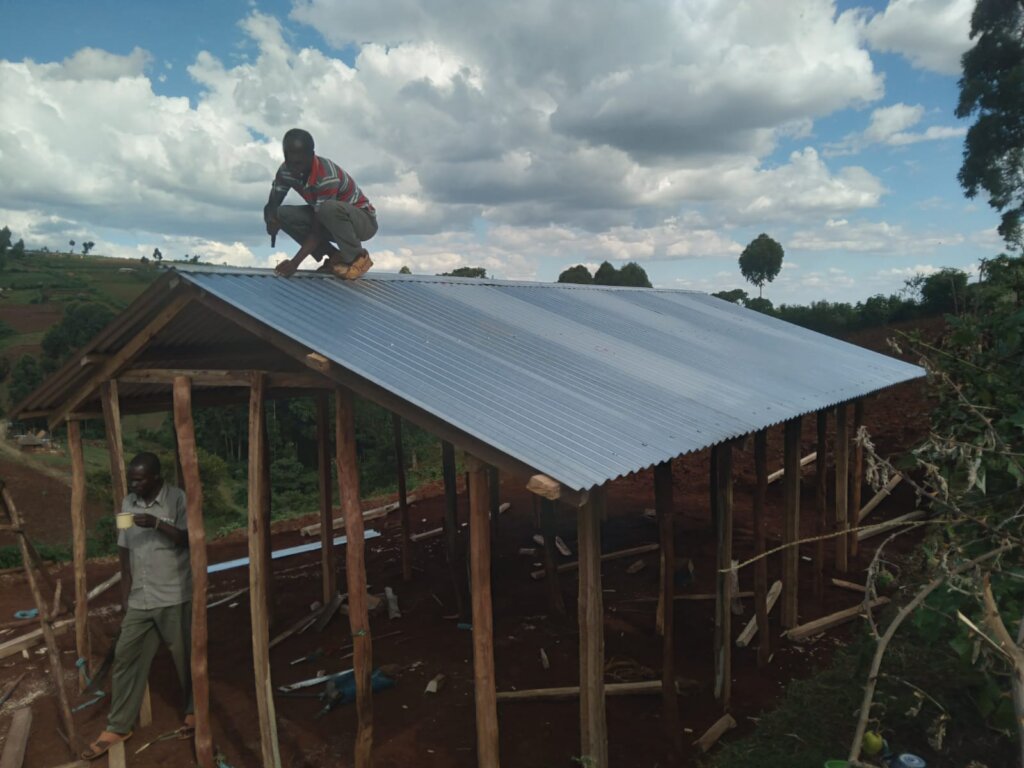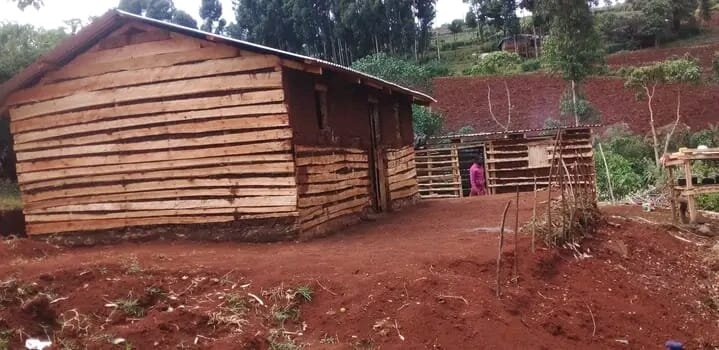By Peter Serete | Program Coordinator
Mt. Elgon has been on the transformation trail from a past that left wounds from a conflict, from a low-income country, challenges will trigger trauma through re-experiencing that has led to avoidance hence breaking family tree. The peace actors played a key role in conflict intervention through Alternative to Violence Project (AVP), Trauma Healing (HROC) and Phycological counselling, interdenominational dialogues and community mediation. In a small village nested on the slopes of Mt Elgon in Kapkosobei village, Her family has been ok until the rains have reminded her family that she can no longer continue to stay in their makeshift shelter cobbled together with rotting wood and leaking grass touched roof, provided little protection against the harsh climate of previously hot sun and currently long rains.
One evening our contact person visited the family and send a very disturbing photo, we came together determined to make a difference, we formed group using WhatsApp platform and started a fundraising drive, pooling resources and expertise to build a new house for her and the children. In one weeks, time we had gathered enough materials because the call for help had already spread and neighbouring villages join in offering their support and encouragement, they worked tirelessly joined in solidarity and compassion, what began as a humble act of kindness blossomed into a communal effort, with peace volunteers lending their time and skills to the cause as they construct a new shelter from the ground up.
With each passing day the house took shape, a tangible symbol of hope rising from the ashes of adversity. She watched in awe as neighbours brought what they could afford, the holes were dug, poles erected and a roof carefully laid overhead. her heart swelled with gratitude knowing that her and children would soon have a safe place to call a home. Tears of gratitude streamed down her cheeks as she embraced her neighbours overwhelmed by their generosity and kindness.
In the days that followed she settled into the new home, their spirits cheered by the love and support of their community. No longer burdened by constant struggle for survival, they dared to dream of a brighter future filled with hope and possibility.
And so, in a small village of Kapkosobei nestled on slopes of Mt. Elgon a single act of kindness sparked a ripple of change that transformed live and renewed faith of compassion and community. For her and the Children, their journey was just beginning, fuelled by the unwavering belief that together anything is possible
“As and mother, facing the daunting task of providing shelter for my family felt like an insurmountable challenge. However, your unwavering support and willingness to lend a helping hand have turned our dreams into reality. From the moment you came together to offer your assistance, I knew we were not alone in this journey. Thanks to your collective efforts, we now have a beautiful, safe, and secure place to call home where my children and I can thrive and build a future filled with hope and possibility. Your kindness has not only provided us with a roof over our heads but has also restored our faith in the power of community and the inherent goodness of humanity”
By Peter Serete | Program Coordinator
By Peter Serete | Program Coordinator
Project reports on GlobalGiving are posted directly to globalgiving.org by Project Leaders as they are completed, generally every 3-4 months. To protect the integrity of these documents, GlobalGiving does not alter them; therefore you may find some language or formatting issues.
If you donate to this project or have donated to this project, you can recieve an email when this project posts a report. You can also subscribe for reports without donating.
Support this important cause by creating a personalized fundraising page.
Start a Fundraiser


